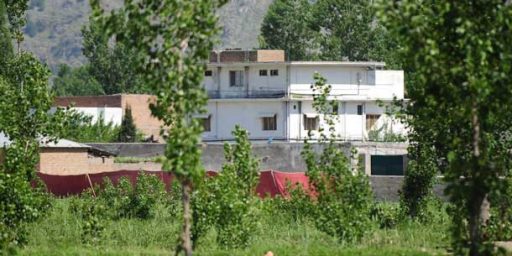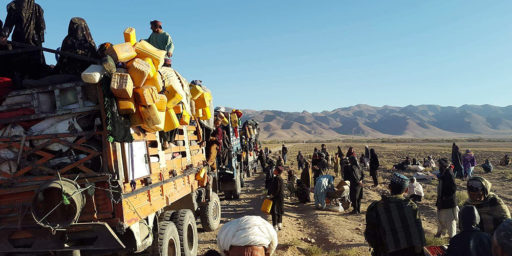U.S. Airstrikes Kill Pakistani Troops
Pakistan is condemning a U.S. air strike which allegedly killed 11 Pakistani paramilitaries as a “completely unprovoked and cowardly act.”
U.S.-led forces killed Pakistani troops in an airstrike along the volatile Afghan border that Pakistan’s army condemned on Wednesday as “completely unprovoked and cowardly.”
U.S. officials confirmed that three aircraft launched about a dozen bombs following a clash between Taliban militants and Afghan and U.S.-led coalition forces late Tuesday. Pakistan says the strikes killed 11 of its paramilitary troops.
The Pakistani army said the airstrike hit a post of the paramilitary Frontier Corps in the Mohmand tribal region and was a “completely unprovoked and cowardly act.” It launched a strong protest and reserved “the right to protect our citizens and soldiers against aggression,” the military said in a statement. The statement said the clash “had hit at the very basis of cooperation” between the allies in the war on terror.
U.S. Ambassador Anne Patterson was summoned to Pakistan’s Foreign Ministry. “The United States regrets that actions in Mohmand agency on the night of June 10 resulted in the reported casualties among Pakistani forces who are our partners in the fight against terrorism,” a U.S. Embassy statement said. It expressed condolences to the families of the dead.
In Washington, a Pentagon official said there was an airstrike during an incursion by insurgents into Afghanistan from Pakistan. The aircraft launched an airstrike under a policy that allows coalition forces to cross into Pakistan if they are in hot pursuit of a target, said the official, who spoke on condition of anonymity because he was not authorized to speak on the record.
But it was not clear if the aircraft actually crossed into Pakistan. In a statement issued from Afghanistan, the coalition said it had retaliated after its forces came under small arms and rocket-propelled grenade fire about 200 yards inside Afghanistan’s eastern Kunar province during an operation that had been “previously coordinated” with Pakistan. The coalition fired artillery, and then using drones to locate more “anti-Afghan forces,” launched airstrikes “until the threat was eliminated.” The Taliban said eight of its fighters died in the skirmish.
Strangely, the Bush administration has seemingly adopted Barack Obama’s position, which was dismissed as “foolishly naive,” on this matter.
I presume that our forces were acting on good faith that they were following the rules of engagement and that they are telling the truth when they say they notified the Paks of what they were doing. It’s doubtful any of that will matter, though, in Pakistani sentiment.






That sounds like a classic “hot pursuit” situation rather than an invasion of Pakistan.
I think it’s a bit early to draw any conclusions about this. Somebody shot at somebody. Somebody else shot back. Somebody was killed. We can probably agree on that. Beyond that we’ll probably need some independent confirmation to decide what happened.
Hot pursuit over borders is always problematic – most countries would feel at least irritated if it happened to them (consider how many in the US would feel if the Mexican air force dropped bombs on the US trying to get fleeing bandits).
I’m pretty sure the forces were acting in good faith. The question is whether or not it was cleared at a higher level before hand, and proper notification was given. If it was, this is a non-issue. If it wasn’t, then its a problem.